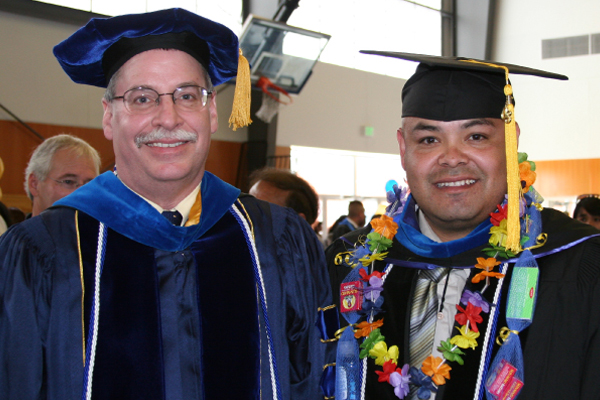Introduction
Graduate and undergraduate school admissions are similar in many ways; they are both competitive and they receive many more applications than available positions. In both cases, applicants provide biographical information, objective credentials and subjective credentials. The objective credentials include grades, work experience and standardized tests scores. The subjective credentials include the personal statement (essay), letters of recommendation and sometimes an interview (virtual or in-person).
Graduate and undergraduate education are quite different despite the similarities with the application process.
- Undergraduate education provides a broad foundation upon which you will build your education and knowledge.
- Graduate education is “specialized” and provides the specific training you need to succeed in your career. It is up to you to research the schools and programs to identify those that will provide that training.
Many strong candidates are not offered positions in programs of their choice. This can be due to competition or sometimes the applicant’s inability to present themselves properly. This guide provides information to help you plan and organize your process to present a competitive admissions portfolio to the most appropriate program for you.
GRE Requirements are Changing
How to Prepare For Graduate School:
This helpful handout from the UC has advice and details for pursuing graduate school in the UC system. Click to download the full UROC Grad Prep Guide (same text as below).
What Next? - whats-next.pdf
How to Prepare For Graduate School:
Applying to graduate school is time-consuming and demanding. You have to plan ahead, be diligent, organized, and prepared to spend the time it takes to prepare an excellent admissions portfolio for the insitution of your choice. You should begin planning once you decide you want to attend graduate school. The students with the appropriate information can prepare themselves to meet the requirements of the school/s of interest.
Prepare a 4-year calendar, indicating each semester and each summer. Goals should be set for each semester and each summer. These goals should be reviewed about once every three months to monitor if you are on track.
- Have you taken the appropriate courses?
- Have you successfully applied to summer research/internship programs?
- Do you need to take a prep course for the required standardized test?
It is important to include some courses outside of your major in the curriculum. This will make you a well-rounded individual who can “survive” in any setting. Of course, you should include some extra-curricular activities, as long as they do not jeopardize your academic record.
Freshman Year
- Introductory level courses (english, reading, writing, basic science courses, research techniques)
- Become familiar with faculty and research (what interests you?)
- Volunteer or connect with faculty of interest
- Develop a curriculum vitae (similar to a resume)
- Go to Office Hours!
(Really though, ask faculty about their research AFTER doing some homework)
Sophomore Year
- Begin focusing on major courses
- Develop skills and discover what research techniques you need to learn
- Apply for summer research training programs (mainly for summer after second year)
- Take a life-enriching or practical skills course
- Begin thinking about graduate school and career (if you have not already)
Junior Year
- Advanced major courses
- Independent research
- Start collecting information on graduate schools and funding agencies (interent, faculty advisors, national science meetings, peers)
- Include some courses in other fields (if your academic plan allows)
- Take a practice standardized test(s) in the Spring semester or during the summer
Senior Year (4th year and above)
- Review/request/download informational/application materials in the early Fall for schools and funding opportunities
- Retake standardized tests in the fall semester, if necessary
- Meet faculty members to ask for STRONG letters of recommendation
- Write the personal statement and ask others for edits
- Order transcripts
- Complete the requirements for graduate school, including advanced courses
- Include a life-enriching or professional/practical skills course
Transfer Students
-
Connect with UROC staff in your first semester on campus
-
Shorter timeline to learn and apply to research programs
-
Look into faculty in your discipline and find what research interests you
Summers and Winter Breaks
- Identify and apply to summer programs (this will give you a preview of the application process for graduate school)
- Participate in Fellowships/Internships which provide research training and practical experience
- Talk to senior students and faculty advisors
- Create an action plan for what you will be doing during academic year
- Complete and submit the application materials

How to Find Information about Graduate School:
- Faculty advisors and their contacts and collaborators
- Graduate School Fairs
- Professional Research Conferences
- Summer internships/fellowships
Once you have gathered information and prepared a list of schools, the application materials should be reviewed/requested/downloaded at the end of the junior year/summer after junior year. This will allow you enough time to develop a thoughtful personal statement and to make the optimal choice of recommenders.
The Relationship of the Master's to the Ph.D. Presentation: the_relationship_of_the_masters_to_the_phd.pdf
Below are a few sites to search for graduate schools.
- https://www.princetonreview.com/grad-school
- http://apps.naspa.org/gradprograms/
- https://graduate.universityofcalifornia.edu/admissions/degree-search/index.php
Selecting Schools for Application and One for Matriculation:
You should apply to no fewer than five and no more than ten schools. These should include one “safety” school and one “reach” school. The schools should be selected based on real information, i.e., a realistic look at your qualifications vs. the requirements for admission and the curriculum of the school. Always keep in mind the following:
- Do they offer what you are looking for
- Is this the best program for you
- Are you academically qualified for that school/program
- Is there an emphasis on your particular area of interest, i.e., are there enough faculty members in your area of interests
- What are the opportunities/resources outside the school, in the geographic area
- What is the reputation/ranking of the school (you should look at the quality of the research and publications, not just the name/national rankings)
- Are their laboratories state-of-the-art, not only conducting cutting edge research, but well equipped
- List your criteria for looking at those schools in order of priority: Academics; Faculty Match; Research Infrastructure; Guaranteed Funding; Environment/Atmosphere; Geographic Location
- Curriculum and Faculty
- What is the structure/organization of the program
- What happens if you want to switch departments/programs
- Is there a supportive academic advisement in place
- Is interdisciplinary cooperation among the students and faculty encouraged or discouraged
- What is the student/faculty ratio/relationship (program size)
- Are there enough faculty in your area of interest to choose from
- The Facilities
- Where is the campus located
- Housing – cost and location
- Accessibility of special facilities/departments to students
- Are there special amenities/services for students
- What is there to do – are there cultural/sports events (theatres and arenas) in the area
- Is it easy to get from place to place
- Alumni
- What are the career opportunities
- Is there a career resource center
- What have alumni done after they complete the program
The Application Process:
Prepare a spreadsheet to facilitate the application process for you. Include the names of the schools, the application deadline, the requirements, etc. Use this to keep track of your schedule of submission of the application documents and contacts with the school.
Here is a spreadsheet template with tips about the grad school process: Download the Grad School Grid Here
Personal Statement:
Why are you unique and why should the school spend its resources on you?
BE HONEST! The personal statement is the introduction of yourself to someone who has to be impressed enough to want to meet you. This individual is reading hundreds of these documents (and probably has read thousands in the past) and yours must stand out. This brief document (generally one to two pages) has to communicate your abilities, accomplishments, and goals.
It must also show your writing skills; your ability to present yourself and your ideas concisely. This is your chance to shine and stand out from among the hundreds of essays that the reader will review. The essay should show your commitment to and motivation for graduate school based on your history. It is crucial that you get some honest critique on your essay before you submit it to the school. Although you should not have to rewrite your entire essay for each program you are applying to, it should be tailored to for each program and institution.
- Content
- Answer all specific questions asked (read the application instructions)
- Who are your and why do you want to pursue graduate education – show your competence, knowledge in your field, and expectations
- Why are you unique – what would you contribute to that school
- Present relevant positive and negative life experiences – accent the positive; briefly explain those events which negatively impacted your academics
- Do not make excuses – explain how those negative events positively affected you in your growth; show your perseverance to continue
- Why do you want to do what you say you want to do
- What makes you qualified to follow this path – show your potential and long-term goal
- Why are you applying to that particular program/school
- General Sequence
- Your goals – degree, field, specialty (if known at this time)
- Why are you pursuing an advanced degree – what event(s) brought you to this point and what are your qualifications
- Why are you applying to this particular school – what are its strengths and how will this help you achieve your goals
- Conclusion – a few sentences to wrap up, showing how graduate school will help you reach your career goals
- Length
- Follow the application instructions
- Not too long, not too short
- Style
- Clear and simple (no need for big words)
- Concise (present only necessary detail to get your information across)
- No repetition
- Make sure it flows
- Check spelling, grammar and word usage
Funding Your PhD:
Most research intensive graduate programs offer some sort of funding. Funding typically comes in the form of research or teaching fellowships which cover the full cost of tuition and award the student a monthly stipend. https://grad.ucla.edu/funding/#/
There are some questions that you should ask about a fellowship package, not only from the school, but also for any individual fellowship from other funding agencies:
- Extramural vs. Intramural
- Is there help in preparing a grant proposal
- What is available and how is it awarded
- Are there payback/teaching obligations
- Are all fellowships full/partial
- How are fellowship renewed each year
- Is the fellowship enough to live on
- Are there opportunities to supplement the financial aid packet
- Are there opportunities and help to apply or special individual competitive fellowships
- What are the extramural funding sources in your field of interest
- the prestige of winning a competitive grant
- creative freedom to tailor your own research project
- shows initiative
- shows that you are a go-getter who knows what to do
- alleviates the financial burden to the program
- increases your competitiveness
For specific information about UC Merced's graduate programs




